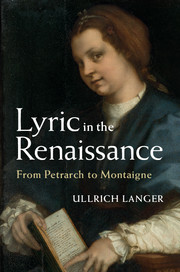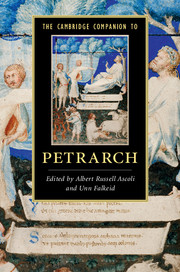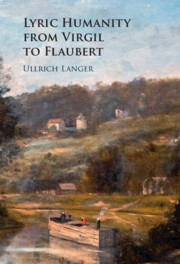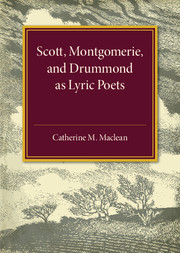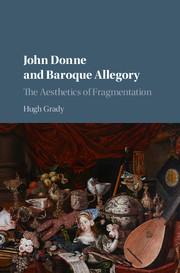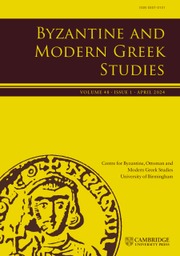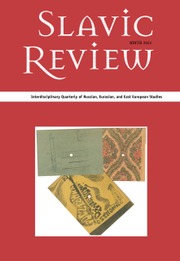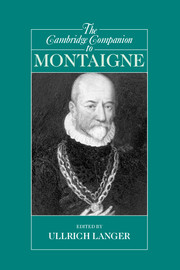Lyric in the Renaissance
From Petrarch to Montaigne
$120.00 (C)
- Author: Ullrich Langer, University of Wisconsin, Madison
- Date Published: June 2015
- availability: Available
- format: Hardback
- isbn: 9781107110281
$
120.00
(C)
Hardback
Other available formats:
Paperback, eBook
Looking for an examination copy?
This title is not currently available for examination. However, if you are interested in the title for your course we can consider offering an examination copy. To register your interest please contact [email protected] providing details of the course you are teaching.
-
Moving from a definition of the lyric to the innovations introduced by Petrarch's poetic language, this study goes on to propose a new reading of several French poets (Charles d'Orléans, Ronsard, and Du Bellay), and a re-evaluation of Montaigne's understanding of the most striking poetry and its relation to his own prose. Instead of relying on conventional notions of Renaissance subjectivity, it locates recurring features of this poetic language that express a turn to the singular and that herald lyric poetry's modern emphasis on the utterly particular. By combining close textual analysis with more modern ethical concerns this study establishes clear distinctions between what poets do and what rhetoric and poetics say they do. It shows how the tradition of rhetorical commentary is insufficient in accounting for this startling effectiveness of lyric poetry, manifest in Petrarch's Rime Sparse and the collections of the best poets writing after him.
Read more- Provides clear definitions of what lyric is, from classical antiquity to the modern period
- Discusses features of Petrarch's language that resonate in poetry of the Renaissance and shows that salient features of poetic language can also appear in prose
- Opens readings of pre-modern lyric to modern ethical considerations
Reviews & endorsements
"In this genuinely original and carefully meditated study, Langer is not interested in the lyric "self" as usually construed or constructed, but rather in a series of textual phenomena that foreground the singularity and existence of individual objects and subjects. The power and the beauty of this book lie in its ability to give an alternate account of Renaissance lyric which avoids the Scylla of humanistic essentialism, on one hand, and the Charybidis of social-historical determinism, on the other, while offering a model of reading and understanding that is at once recognizable and "estranging" in the very best sense."
Albert Russell Ascoli, Terrill Distinguished Professor, University of California, BerkeleySee more reviews"Bringing his customary erudition and insight to bear on some of the most familiar works of the Renaissance, Ullrich Langer discovers surprisingly original effects of "an "existential singularity"", as distinct from classical ethos and pathos as it is from modern subjectivity. These sensitive, sympathetic readings offer an impressive reappraisal not only of first-person writing in the Renaissance but of the way Renaissance poetry was designed to act on its readers."
Edwin M. Duval, Yale University, Connecticut'… offers a reading of early modern lyric that cuts obliquely across all of our usual categories for understanding the period, welcomingly unsettling both historicist and formalist perspectives alike.' Vanessa Glauser, Renaissance and Reformation
'… a rhetorically meticulous reading, historically informed without being historicizing, showing how a few carefully deployed rhetorical devices produce the startling affective jolts, the impression of wrenching selfhood and inexplicable, inexpiable yearnings that this poetry can still call forth.' William N. West, Modern Philology
Customer reviews
Not yet reviewed
Be the first to review
Review was not posted due to profanity
×Product details
- Date Published: June 2015
- format: Hardback
- isbn: 9781107110281
- length: 224 pages
- dimensions: 234 x 158 x 18 mm
- weight: 0.47kg
- availability: Available
Table of Contents
1. Introduction
2. Petrarch and the existential singular
3. Minimal lost worlds: the rondeaux of Charles d'Orléans
4. Ronsard's singular erotic reciprocity (Les Amours de Cassandre)
5. Singularity as emptiness: Du Bellay's Regrets
6. Montaigne and his 'sublime' lyric
7. Conclusion
Bibliography.
Sorry, this resource is locked
Please register or sign in to request access. If you are having problems accessing these resources please email [email protected]
Register Sign in» Proceed
You are now leaving the Cambridge University Press website. Your eBook purchase and download will be completed by our partner www.ebooks.com. Please see the permission section of the www.ebooks.com catalogue page for details of the print & copy limits on our eBooks.
Continue ×Are you sure you want to delete your account?
This cannot be undone.
Thank you for your feedback which will help us improve our service.
If you requested a response, we will make sure to get back to you shortly.
×
